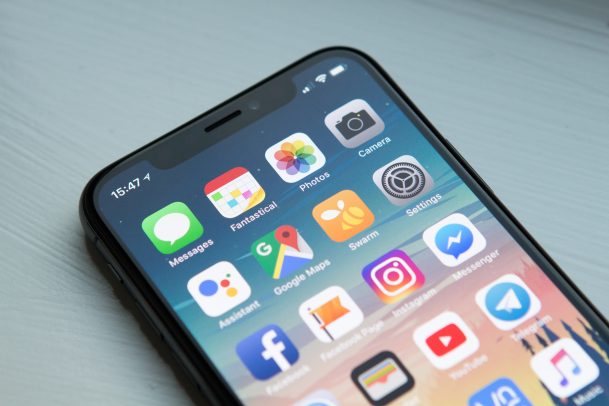Yesterday Cisco demonstrated world-class innovation, also unveiling a series of fresh Webex features set to improve the customer experience (CX) and increase workplace productivity in the new reality of hybrid working. Webex Go is Cisco's latest business phone system that connects to any mobile device. Cisco even gave its CPaaS capabilities a boost.
The kind of innovation one might expect from the likes of Webex, as a leading provider of cloud-based collaboration solutions for video meetings, calling, messaging, events, customer experience solutions like contact centers, and purpose-built collaboration devices, right?
While there is no set delivery date for many of the features listed in this article, we could expect to see a gradual rollout of many of them over the coming months. With WebexOne upcoming, a Cisco conference which; extends a deep dive into all the latest Webex product updates, from hybrid work to customer experience.
Set to feature over 30 sessions that explore everything from the workforce to workspaces, platform management, and creating (hybrid) events - attendees can also network with innovators from across the video conferencing and collaboration industry in attendance. The annual developer conference is free and held from October 26-27. You can still register for WebexOne.
Fresh Innovations to Webex Calling
With the introduction of Webex Go; Webex users no longer have to manage business phones separate from their devices. Webex Go is an enterprise-grade solution with Webex Calling features available and a ton more. New location-based emergency calling with Nomadic E911 is also fresh to the platform. Now, when; you make an emergency call from the Webex App - those responding to the emergency receive your accurate location information.
"If the Webex App determines you have moved to a new location, users get prompted to update their address," Cisco wrote in a statement.
Users also gain access to cloud calling functionalities on personal room devices, enabling them to call coworkers by name or extension from a Webex Desk Pro device. Integration with Singlewire InformaCast; also available so that users can send emergency announcements. They can do so as recorded audio pages and broadcast that message to Cisco phones/speakers.
There is even the capability to send messages via text alerts to digital signage, desktop computers, and mobile devices, a feature that could prove valuable in plenty of situations. Customers who are not quite ready to migrate their entire calling business to cloud calling, can:
"Now mix multi-tenant and dedicated instance for hybrid deployments," according to Cisco.
And more coverage for Cisco European calling plans is on the way, with support to come for: Belgium, Denmark, Finland, France, Germany, Greece, Ireland, Lithuania, Luxembourg, and Sweden. Finally, a new calling widget for the Webex App aims to make it more straightforward to multi-task and answer calls faster.
Cisco Further Takes on CXaaS with IMImobile
Since the February 2021 acquisition of IMImobile - Cisco has been on a mission to integrate the cloud communications software and services into its tech stack. The hope? According to Cisco:
"To create a comprehensive Customer Experience as a Service (CXaaS) offering that gives businesses the ability to deliver consistently enjoyable and rich customer experiences."
IMImobile and Cisco just released a ton of new bells and whistles that enable their customers to provide end-to-end customer interaction management via the channel of the customer's choosing. Webex customers can soon connect the entirety of their customer journey across multiple channels and touchpoints from a single unified user interface. What does this mean in practicality?
"Businesses can connect a shopping cart to a chat, to a call, to an email even though those different interactions happened through different departments or vendors."
And leveraging the power of artificial intelligence, the CXaaS solution works to anticipate customer behavior. It can then preempt or respond in real-time to customers. If contact centers experience higher than usual call volumes, the Webex Customer Experience engine can sense the urgency to respond to customers.
Cisco's Beefing up its Enterprise CPaaS Offering
Starting early 2022, Cisco's Communications Platform as a Service (CPaaS) offering will gain Webex video technology functionality. Cisco's imiconnect CPaaS offering; already enables rich customer and employee interactions across a plethora of industries including telehealth and education.
If you were looking for another reason to attend WebexOne, it could very well be because; what I will mention next. Event attendees, namely developers, can build, test, debug, and develop prototypes of the kind of CPaaS platform they desire.
Enter the enterprise developer sandbox, a set of tools designed to help businesses and developers save time, reduce the complexity associated with product design, and deliver innovation rapidly. Developers can register here and can use the sandbox starting October 27, 2021.
Support for Future of Work, In-Person & Virtual
It is clear from Cisco's latest round of product enhancements that its aim is to further support the future of work. The way they see things, the future of work will consist of two kinds of experiences, hybrid and in-person. This could mean that employers allow employees to work at home part of the time, while the other portion of the time they must come into the office.
Easing the barriers felt by employees who work remotely is also a part of Cisco's principal aim, and it hopes to do so with the release of its Webex Go offering. It makes sense that letting users connect their Webex business number to their mobile device would work to greatly enhance customer and end-user experience at the end of the day.
Along with features that have made it safer to be in the office during the Pandemic, at least in reduced numbers - Cisco has revamped many of its core technologies during COVID-19 to fuel what it calls the next generation of the workforce.
Cisco is, of course, not the first to launch advanced FMC (or fixed-mobile convergence) capabilities, but it is one of the latest to do so, with other more niche players having beat the collaboration giant to the punch so to speak.



